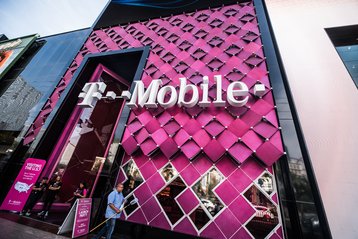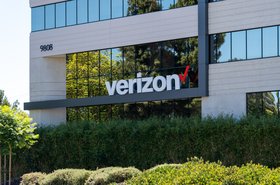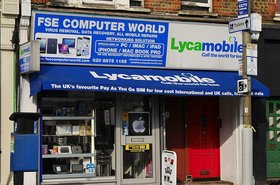T-Mobile and EQT Infrastructure have closed their joint venture (JV) acquisition of fiber provider Lumos.
The announcement of the deal comes after T-Mobile made changes and ended some of its diversity, equity, and inclusion (DEI) efforts.
First announced in April of last year, T-Mobile entered into a JV with EQT Infrastructure to acquire fiber-to-the-home platform Lumos from EQT’s predecessor fund, EQT Infrastructure III.
T-Mobile stated that Lumos customers will become T-Mobile fiber customers as part of the acquisition.
Lumos operates a 7,500-mile fiber network and provides fiber connectivity to 475,000 homes across the Mid-Atlantic.
As part of the JV, T-Mobile and EQT aim to reach 3.5 million homes by the end of 2028.
The carrier will invest $950 million into the JV, with an additional $500m planned between 2027 and 2028.
T-Mobile has launched its fiber services to 32 US states. The carrier said that through strategic fiber partnerships and JV's, it will reach 12 to 15 million households with fiber by the end of 2030.
"T-Mobile is already the fastest-growing broadband provider in America, and expanding into fiber helps us take the next big step in delivering what customers truly want – faster, more reliable Internet that simply works,” said Mike Katz, T-Mobile president of marketing, strategy and products.
It's not the only fiber JV that T-Mobile has carved out. Last year, the carrier set up a JV with investment firm KKR to acquire fiber Internet service provider Metronet for $4.9 billion for a 50 percent stake.
Rival carriers AT&T and Verizon have also pushed hard on fiber in the last couple of years.
It was reported last week that AT&T has entered talks to acquire Lumen Technologies' consumer fiber operations for $5.5bn.
AT&T has previously outlined its fiber ambitions. In December, the carrier's CEO John Stankey said the company plans to reach more than 50 million fiber locations by 2029.
Elsewhere, Verizon is in the process of pushing to get its $20 billion acquisition of fiber provider Frontier Communications.
Changes to DEI policies
T-Mobile's announcement of the deal comes after the company agreed to modify, and in some instances, scrap some of its DEI policies.
Reports last week suggested that Federal Communications Commission (FCC) Chair Brendan Carr could block telco M&A's such as T-Mobile's acquisition of Lumos over diversity policies.
"You instructed companies within the FCC's jurisdiction to evaluate their DEI programs to identify and eliminate any invidious forms of discrimination," said Mark Nelson, T-Mobile's EVP and general counsel, wrote in a letter to Carr.
Outlining the changes that T-Mobile has made, the carrier said it "modified" its approach to supplier diversity, "which in the past was subject to directives from the prior administration that were recently rescinded by the President’s Executive Orders and subsequent agency actions."
T-Mobile said it has also "eliminated specific targets or goals for diverse spend in our procurement policies and instead made clear that it is T-Mobile’s policy that purchases and contracts are awarded based on the best qualified and most competitive suppliers to enable T-Mobile’s success."
The carrier noted it has also dissolved its external diversity and inclusion councils, and said that its deal with Lumos "will result in the formation of a new company that we have determined from its inception will not promote invidious forms of discrimination."
"At the same time, T-Mobile remains committed to the principle that we can best serve our customers, employees, and shareholders through a diversely talented workforce and supplier base that comes from all walks of life," added Nelson.
"T-Mobile excels when its workforce and its suppliers bring a multitude of skills and backgrounds to our collective effort to be the nation’s best wireless company. We will remain committed to these principles."







